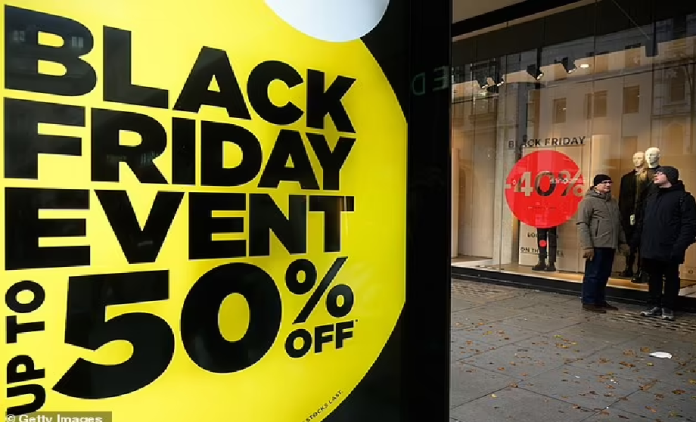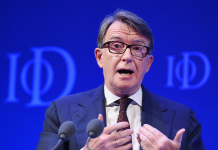LONDON. Jan 07/Reuters/ – Black Friday spending helped lift retail sales in late 2024 but overall sales in the final quarter of last year proved disappointing, the British Retail Consortium said on Tuesday.
Thursday, February 19, 2026
More
Total retail spending rose 3.2% year-on-year in the four weeks to Dec. 28 after a 3.3% drop the month before. Last month’s rise was the biggest since March, but Black Friday fell in the BRC’s December period in 2024 and in November in 2023, distorting year-on-year comparisons.
Looking at the fourth quarter as a whole, spending increased just 0.4% in annual terms – in effect a fall in sales volumes once higher prices are taken into account.
“Following a challenging year marked by weak consumer confidence and difficult economic conditions, the crucial ‘golden quarter’ failed to give 2024 the send-off retailers were hoping for,” BRC chief executive Helen Dickinson said.
Britain’s economy lost momentum in the second half of 2024, partly because of tax rises announced in the new Labour government’s first budget on Oct. 30.
The BRC said total retail sales in 2024 as a whole rose by 0.7%, while like-for-like sales, which adjust for changes in retail floorspace, rose 0.5%.
Separate debit and credit card data from Barclays also painted a weak picture with consumer spending unchanged in December compared with a year earlier.
Spending on essentials dropped by 3% – partly due to lower petrol prices – while spending on non-essentials rose.
Cinema spending jumped 52%, helped by films such as “The Wizard of Oz” spin-off “Wicked”, but spending at restaurants and pubs grew only modestly.
Some economists see scope for stronger consumer spending in 2025, as wages are forecast to rise in real terms and average household savings are high compared with pre-pandemic levels.
© London Post, All Rights Reserved by Independent Media Group UK Limited.






